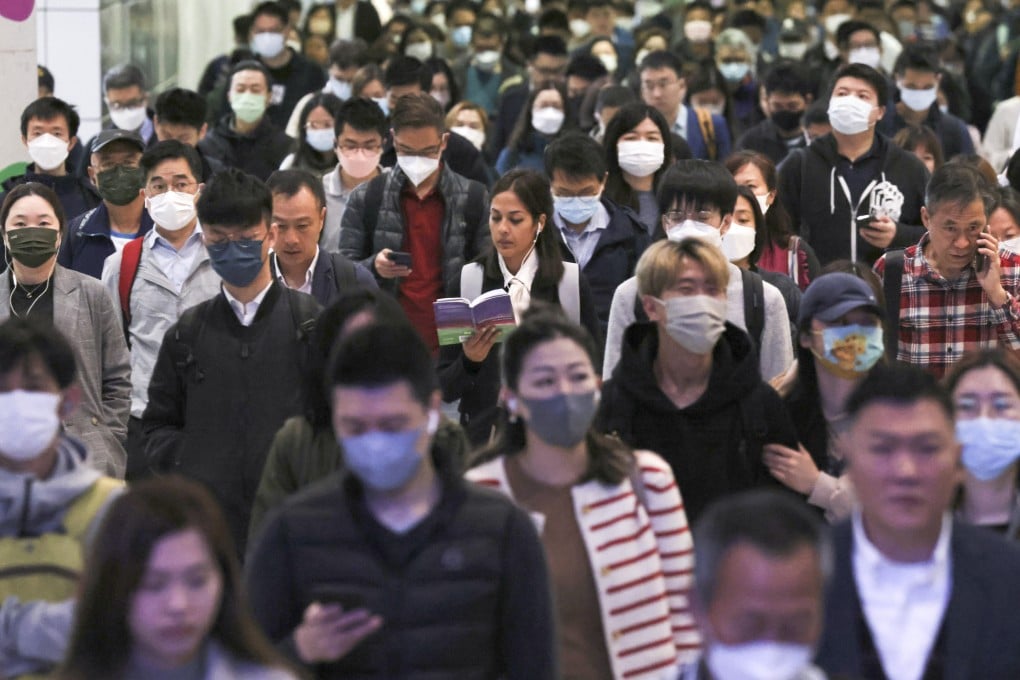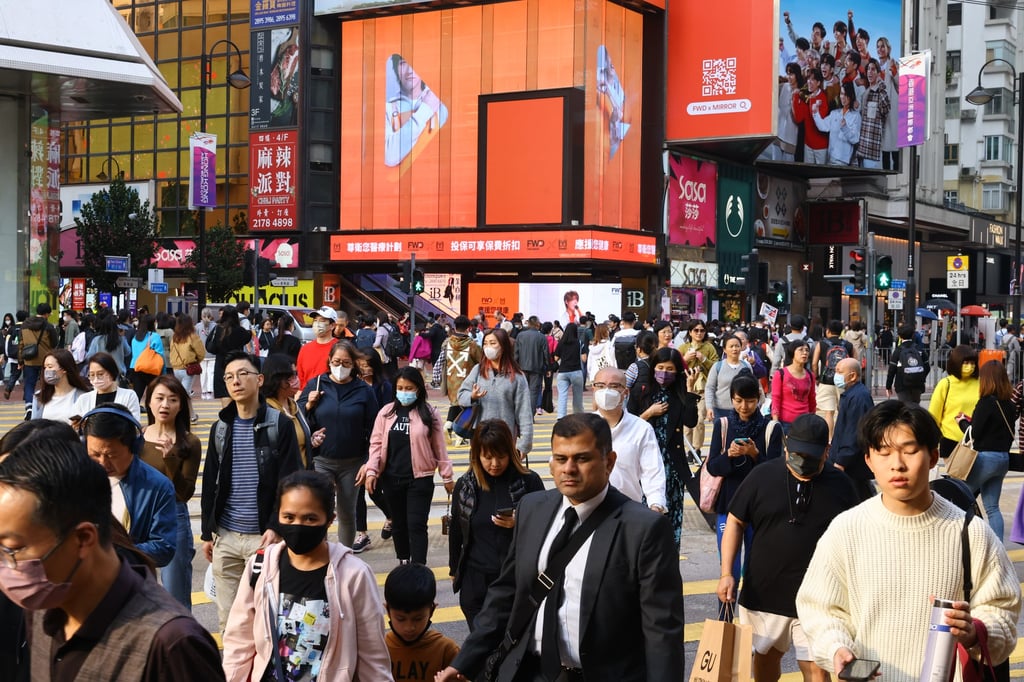To mask or not to mask? Hong Kong public health experts explain why many continue to wear face coverings, while others have ditched them
- Masks have spurred online debates, with some saying people who choose to wear them are ‘servile’ while those foregoing them ‘embrace freedom’
- Cultural inclinations toward collectivism or individualism affect a person’s decision to use masks, University of Hong Kong professor says

Conformity to social norms and a culture of not affecting others may explain why many Hongkongers are still using masks despite the recent lifting of the face-covering mandate, public health experts have said.
The city on Wednesday became one of the last places in the world to drop the mandate requiring residents to wear masks in public places after a restriction lasting 959 days. But many people have continued to wear them on public transport and out in the streets, even though the Covid-19 health crisis has ended.
The decision to wear or ditch masks has spurred online debates, with some calling those who keep them on “servile” and people who have rejected them as “liberal and embracing freedom”.

Noah Shusterman, a Chinese University history academic, said that his decision to wear a mask was influenced by the people around him.
“At this point, I’m wearing one because most people around me are,” he said. “It’s a sudden transition … I’ll do my part to make the changes less abrupt.”
But 33-year-old teacher Yan Pun said safety and comfort would determine whether she would opt for a mask. She added she would wear one only in poorly ventilated indoor spaces, such as crowded classrooms or buses.
Julie Liao Qiuyan, an assistant professor from the division of behavioural sciences at the University of Hong Kong’s school of public health, agreed people’s decision to wear masks was influenced by the behaviour of others.